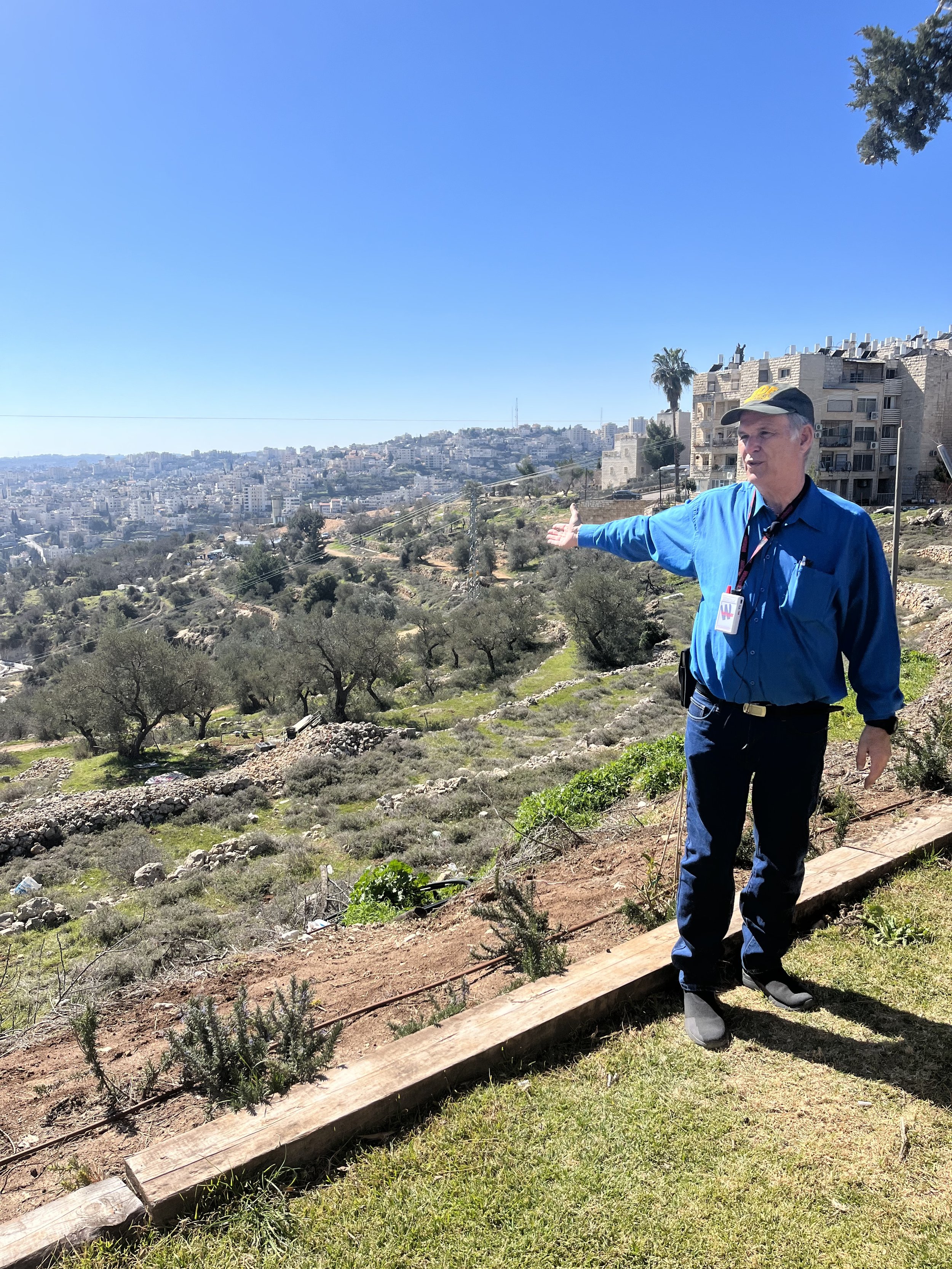Historic America in Israel: Aaron's Travel Journal PART 5
A few months ago my wife Molly & I took a once-in-a-lifetime trip to Israel as part of an amazing journey with the Israel Collective. These are my journal entries over the course of the trip. Today’s post is the fifth installment. More to come!
DAY SIX / 2.13.22 / 8:40AM / Hotel
This morning we enjoyed a presentation and Q&A session with CBN journalist Chris Mitchell. He came to Israel in the early 2000s with his family. The intifada started soon after. Chris is a kind man with a subtle Boston accent. He engaged us with a mixture of current events punditry and personal anecdotes. For instance, living in Israel has made Chris a more aggressive driver and when he returns home to the United States he finds it hard to stand quietly in line. Let’s just say that Israelis can be more abrupt than we Americans are.
In Chris’ estimation, the #1 threat to Israel is the government of Iran; specifically, that government’s pursuit of nuclear weapons and ballistic missile systems. Iranian rhetoric is aggressive. Living here helps you develop a more realistic perspective about the immediacy of the threat. He also talked about big news stories that loom on the horizon. A potential peace deal between the Saudis & Israelis is in the wind. The Crown Prince of Saudi Arabia (in closed door meetings) has said he wants peace and Israel is thinking about providing some Sunni Arab states with Iron Dome to help protect them against the Iranians.
On another front, Chris spoke about how (from the Israeli perspective) the West Bank was first (and still is) Judean Samaria. This is a deeply historic and culturally important area for Jews where much of the Biblical story takes place. Again, one of the many reasons tensions run high here.
[Later that morning]
Col. Dany Tirza takes us on a tour of the security fence.
A true VIP tour experience today as we were lead on a tour of the Israeli security fence by Dany Tirza - the man who actually designed it.
He climbed aboard our bus wearing a green IDF hat and proceeded to take us on multi-stop journey exploring the history, development, and construction of the fence. The fence itself was built in response to the wave of terrorist attacks aimed at Israel from the Palestinian territory in the early 2000s after the peace talks at Camp David fell through. Thus came the Second Intifada. Dany was a friendly man with a gripping story to tell.
It was particularly interesting to hear how Israel navigated a figurative minefield of religious & ethic sensitivity in building the fence. For instance, they constructed special gates for no other purpose than to allow for religious pilgrimages to take place at select times of year. They made special ‘clean rooms’ where incoming Muslim day workers could be sniffed by bomb dogs without having to see or interact with the animals themselves (dogs are offensive to Muslims). Also, in the walled sections of the security barrier, there is a small hole left at the top of each panel where light can shine through. This is a symbolic gesture made in the hope that the barrier will one day go away once the need for the wall disappears. To paraphrase Dany himself, “I’m proud of the fence because it keeps people safe, but if the circumstances ever arise where it can come down, I’ll be there to remove the first brick. I hope to do so in my lifetime.” Amazing.
[That afternoon]
Our amazing guide James shows us artifacts from the City of David.
An utterly wonderful experience at the City of David. This grand archaeological site is the spot within modern Jerusalem where King David’s ancient city once stood. Our guide was James and he was an inspiration. Not only did he explain the history well, but he did so with tremendous passion. The ancient city seemingly came to life around us. It also helped that he spoke with a lyrical British accent.
Always referring to us as, “friends and beloved ones” James first brought us to the ruins of King David’s palace (only recently discovered). We then traveled along the Roman-era roadway which brought pilgrims into the city during the time of Christ. Along this same path Jesus walked. This roadway is currently being excavated and will soon be open to the public. At present, however, it’s closed to visitors. We were blessed with private access through our Israel Collective arrangement (huzzah!). Because you must delve underneath a millennia of subsequent construction to reach it, the roadway has been unearthed and protected via a long, well lit, subterranean tunnel space.
An ancient Roman roadway runs underneath the City of David.
James said that the roadway was once lined with shops and a variety of buildings, all of it drained by an underground sewer system, which you can still see through ancient storm grates in the roadbed. Within these sewers the last Jewish rebels held out against their Roman enemies who would, in turn, reduce Jerusalem by siege in 70 AD and put the city to the torch. Following this destruction there came a massive Jewish diaspora - a recurrent happening in the history of Judaism. As the wood in the buildings collapsed from flame, the piles of rubble smoldered atop the roadway. Eventually the burning wood turned to charcoal and the charcoal exists to this day.
At the culmination of his talk, James reached into one of these piles of rubble and pulled out a piece of this ancient charcoal. It looked like a lump of stone until he rubbed it on his forearm for us to see. It proceeded to leave a mark as black as a Kingsford briquette.
James then launched into an impassioned speech about this ancient burning being part & parcel of the ongoing persecution of Jews; a phenomenon which stretches back through the ages and continues through today. He spoke of his family history, their escape from persecution and journey to Israel, and ultimately the need for a Jewish homeland. It was exceptionally powerful. I grabbed a piece of the charcoal and smudged my journal with it.
[That night]
Tonight we had an illuminating lecture from Khaled Abu Toameh, an Israeli citizen and Arab who writes for the Jerusalem Post. As both a proud Israeli citizen and an Arab he had good insight to offer. He was careful to state at the beginning that Israel’s government needs to change its approach in interacting with its Arab citizens. There’s too much discrimination. If left untended there’s the potential that the next devastating intifada might come from within.
He then went on to characterize the Palestinian / Israeli conflict as a messy divorce where the couple still has to share the same tiny home. An apt metaphor. He was also keen to point out that despite what many in the west are led to believe, 98% of Palestinians live under Palestinian governance. This stands in direct contradiction to the narrative of Israeli occupation. He named the key problem in Palestinian culture. Specifically, the leadership refuses to prepare their people for peace with Israel and is instead focused on continued incitement. An entire generation is being raised to glorify jihadism - but this extremism boomerangs on the people and continually undermines Palestinian progress.
He suggested some changes.
No more western money for Palestinian leadership as long as it insists on continued radicalization. In order to protect itself, the PLO leadership blames all Palestinian problems on Christians & Israel - when in reality it’s their own corruption & moral bankruptcy that’s largely to blame for the degraded plight of the average Palestinian. For its part, Israel should work with anyone who’s willing to talk. Also, Israel needs to do a better job of combatting internal discrimination against its own Arab citizens. Public funds are not evenly distributed and Arabs are not trusted with positions of authority and are made to feel lesser as a result.
Khaled’s talk was one of my favorites because it was typified by a sort of clear-eyed patriotism and the assertion of the fundamental just-ness of Israel that didn’t veer into boosterism. He identified what was good about his country and also that which could be changed for the better.
If you want to learn more about the Israel Collective, click HERE. If you’d like to learn more about our great tour guide, Yoav Rotem, click HERE.



